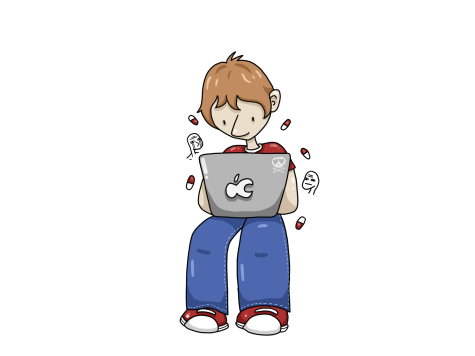Gen Z must reconcile internalized bias
February 22, 2023
Like most kids my age, I grew up on the internet. My adolescence lined up roughly with the development of the “manosphere,” a prevalent internet culture that, in my opinion, developed because of the absence of other spaces for boys and men to explore masculinity. Rather than promote positive exploration of male gender roles, the manosphere rationalizes a radical transformation of these issues.

Most creators in this space take the stance that society, not men, are the issue and that society is at fault for leaving men behind. The rhetoric is a convincing mix of degrees of truth coupled with a rage at a world that has failed them, as well as an overzealous acceptance of even the most negative traits associated with masculinity.
I had a very liberal upbringing in Hyde Park. While manosphere content filled my online spaces, I had other positive influences. I’m lucky to have been raised by a strong working mother and a father who wasn’t shy about having hard conversations with me about how to think about yourself as a man in the 21st century.
Because of this I’ve had a relatively healthy relationship to my gender identity. I’m a person who has always been comfortable not fitting in with the majority of my peers, so I didn’t ever feel pressured to do typically masculine things. Sports didn’t particularly interest me. I’ve always loved video games, which has generally been an activity for boys. Essentially, I took the parts of societal norms that I liked and left the rest.
Despite this, I think that my friends and I have been influenced by these radical ideas. The incel philosophy of looking at the dating economy as a zero-sum game where in order to be desirable you have to strive for financial and physical gain has played a role in that way that I think about relationships. This ties into what I’ll broadly call hustle culture, which pushes the idea that to be a man is to be a worker. On its face this isn’t a bad thing. There’s nothing wrong with a man who wants to push himself to improve in any number of fields, but when it becomes self-destructive, problems arise.
I personally have also struggled with emotional vulnerability, particularly with other men. Emotional reservation is something that is generally encouraged as a man — a broader part of not showing weakness of any kind. I’ve internalized this behavior without consciously choosing to. It’s something I really need to work on, and the solution can only come from me.
Boys and young men need a new definition of what it means to be a man that allows positive expression of gender identity while not invalidating or dominating the identities of others. This has to be a shared societal project. Men have to recognize negative behaviors they’re involved in while not wholly rejecting their gender identity. Finding this balance is difficult, and will largely be an individual process, but it has the potential to make men’s lives, and the lives of those around them so much better.